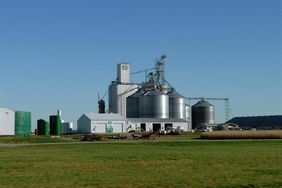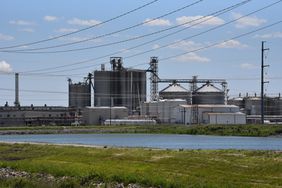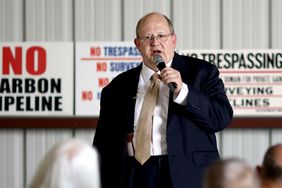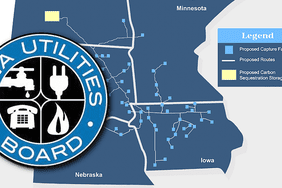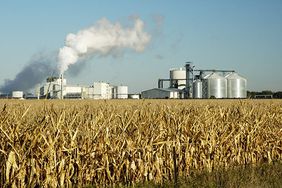:max_bytes(150000):strip_icc()/harvested-grain-corn-and-a-flask-of-corn-oil-used-both-as-a-cooking-oil-and-a-feedstock-used-for-biodiesel-biofuel-530869550-587103495f9b584db3966240.jpg)
Lucrative tax credits of up to $1.25 a gallon should be available only for low-carbon fuels made from U.S.-grown feedstocks, four farm groups told the Biden administration on Wednesday. In a letter, the groups also said the government should broaden its list of climate-smart farming practices that produce lower-carbon “sustainable” crops.
The letter was aimed at 45Z tax credits, which are to become available in 2025, for sustainable aviation fuel (SAF). The administration has yet to issue regulations for the credits. In April, it published a guidance on 40B tax credits for SAF produced from 2022-24. Under the guidance, only a fraction of U.S. biofuels would qualify for the 40B credits. The Biden administration has a goal of increasing SAF production to 3 billion gallons by 2030.
“However, without clear domestic feedstock requirements, the benefits of this policy are at risk of being diverted from American farmers,” said the letter. “The 45Z tax credit has the potential to be a game-changer for our industry.”
The 40B guidelines lack a domestic feedstock requirement, said the letter, and they are too rigid in saying that jet fuel produced from ethanol must come from corn grown on farms that used no-till, planted cover crops following harvest, and applied enhanced-efficiency fertilizer or be made from biomass-based diesel derived from soybeans grown on farms that used no-till and cover crops. “Additional options from compliance must be considered,” the groups said.
The letter was signed by the American Farm Bureau Federation, the National Farmers Union, the National Corn Growers Association, and the American Soybean Association.
Separately, fertilizer maker CF Industries and ethanol maker POET announced a pilot project in the western Corn Belt that would use low-carbon ammonia fertilizer to grow corn for ethanol production. The practice “can reduce the carbon intensity of ethanol up to 10 percent,” said the companies. The test would begin this fall and continue through the 2025 harvest.
The farm group letter is available here.
:max_bytes(150000):strip_icc()/ag-insider-credit_640x320-470ba0d2e59a48198b243a3f3b5a3a4c.png)
